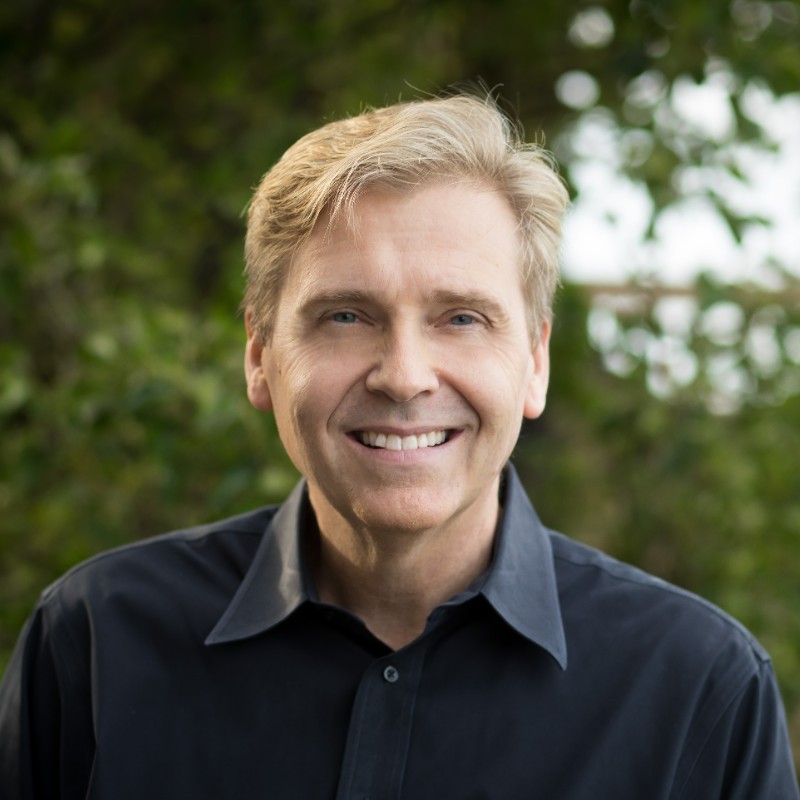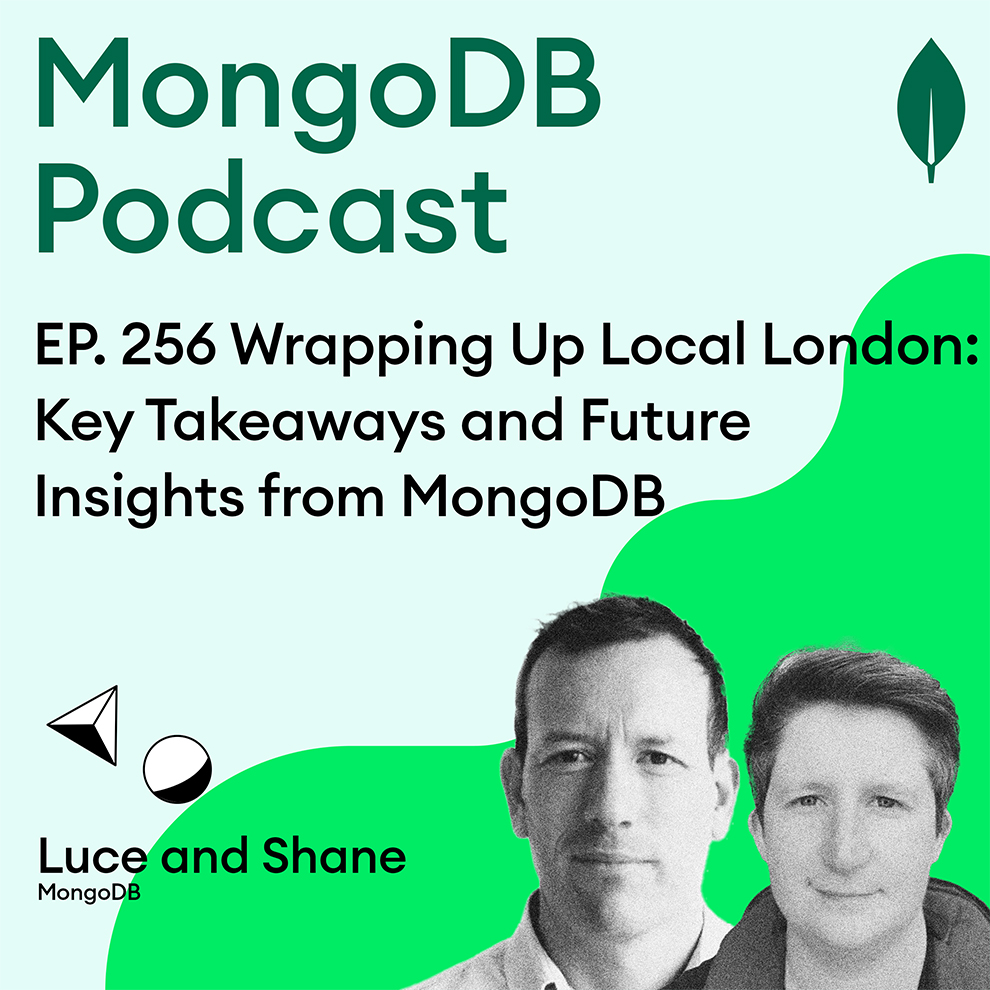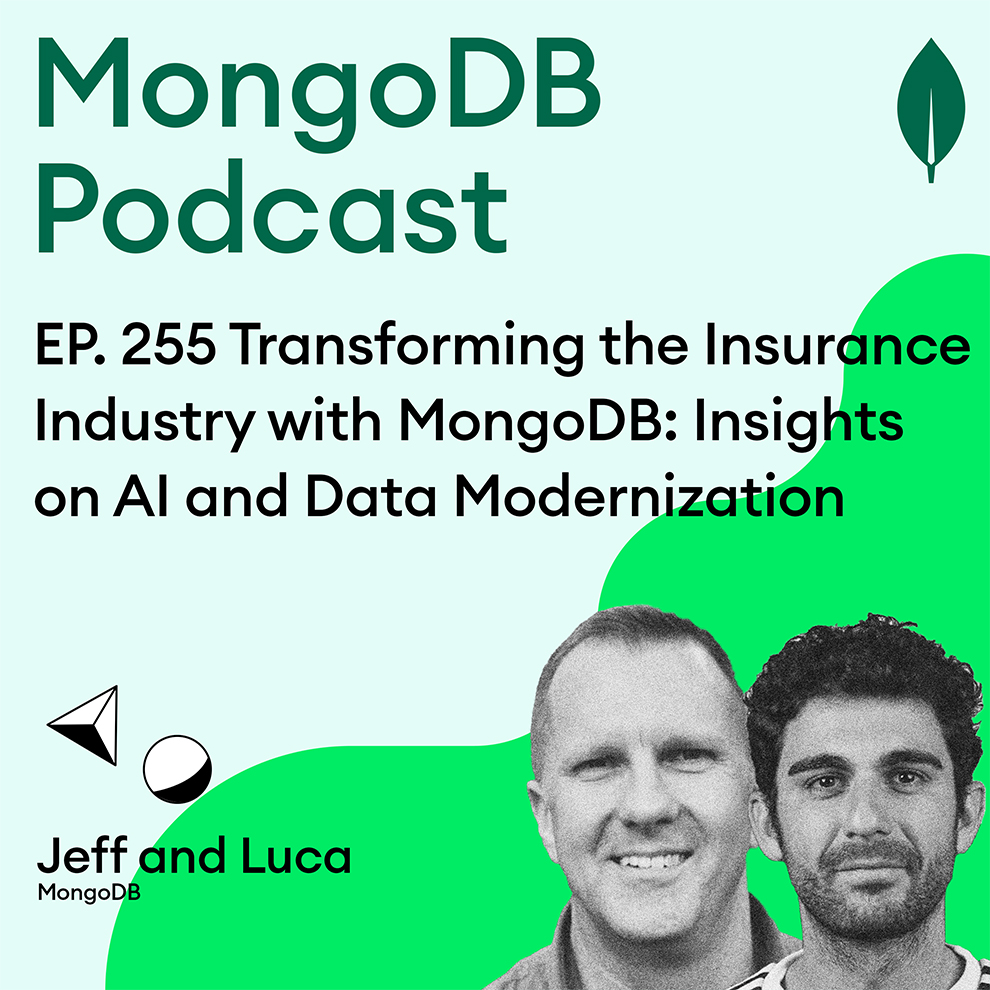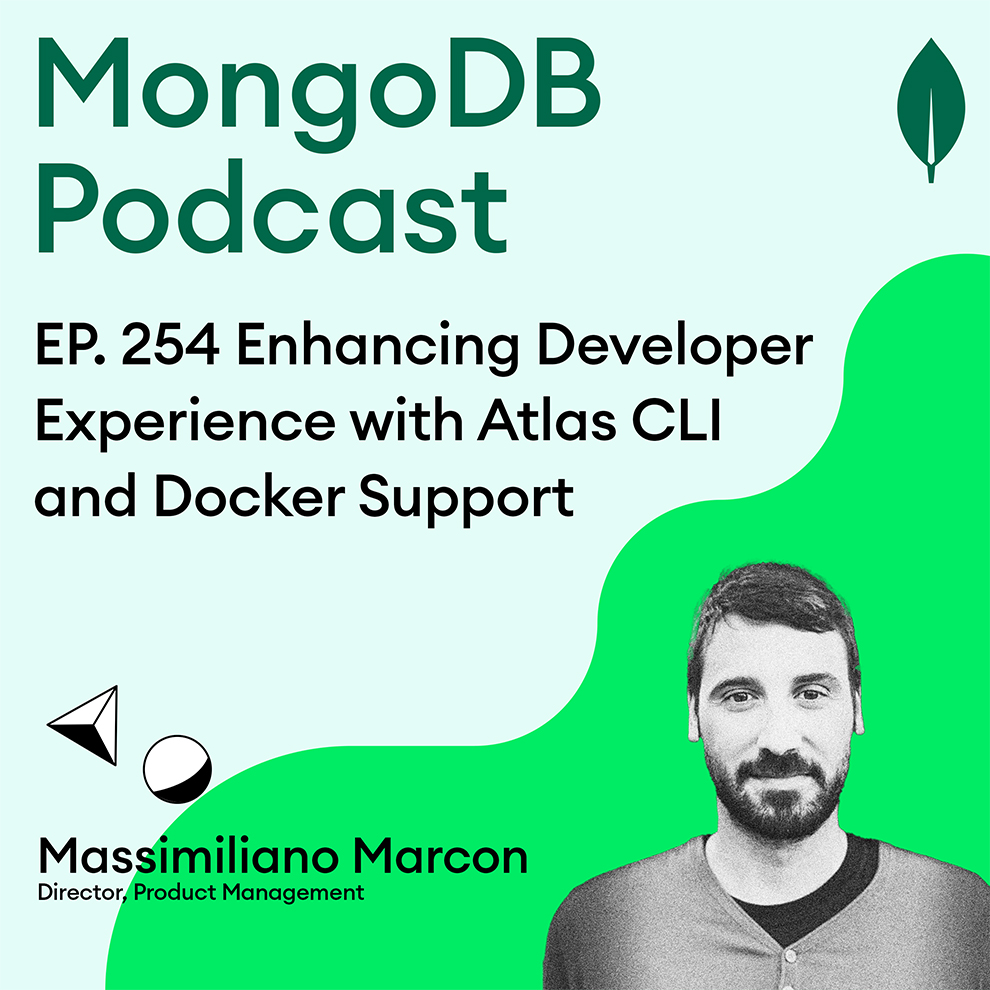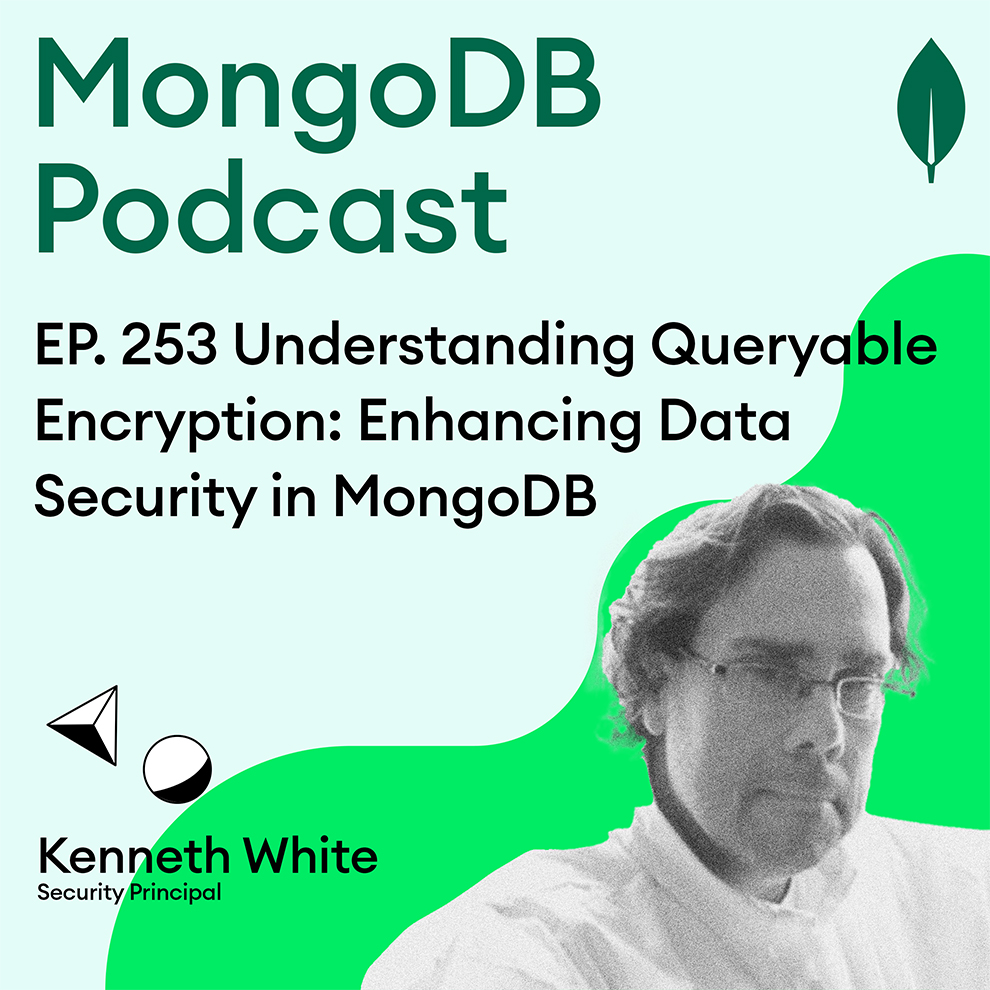Ep. 113 MongoDB World 2022 - Know Before you Go
- 0.5
- 1
- 1.25
- 1.5
- 1.75
- 2
Michael Lynn: Welcome to the show. My name is Michael Lynn, Developer Advocate at MongoDB. And host of this, the MongoDB Podcast. Today's episode is dedicated to those of you interested in or attending MongoDB World 2022. The event is happening June 7th through the 9th in New York city at the expanded Javits Center. We're going to kick things off today with Mark Porter, our very own CTO and keynote speaker for the event. He'll share some details about the event, as well as some tips for those of you attending MongoDB World for the first time. Next, we'll chat with Ian Massingham, who leads developer relations and community at MongoDB. He's got some wonderful tips for you as well. And he's going to share some details about how developer relations contributes to the conference. Then we've got a lineup of speakers, presenters, folks giving talks at the show. They're going to be talking about some of the things that they're bringing to the show. All of the things you need to know before you go to the show. It's MongoDB world 2022, June 7th through the 9th you can get more information at mongodb.com/ world. Stay tuned. Let's get things started with Mark Porter, CTO of MongoDB. Mark, welcome to the show. It's great to have you on the podcast once again.
Mark Porter: It's great to be on the podcast with you, Mike.
Michael Lynn: Well, a lot has happened since your last appearance on the podcast, which was September 23rd 2020. So that was episode 19. What has happened and what's going on at MongoDB since your last time on the podcast?
Mark Porter: So last time I was on the podcast was in 2020. I was new to the company and it has just been such an exciting time. We released MongoDB 4. 4, we released MongoDB 5.0, and we're we're coming up on releasing MongoDB 6.0. In addition, the world has changed. Obviously, I joined during the pandemic, but the world has just gone digital in a way that I don't think we ever could have expected. And that has just been a very exciting experience for me and for everyone else at MongoDB.
Michael Lynn: Maybe talk a little bit about your role at MongoDB World and some of the things that you're excited about.
Mark Porter: I'd love to. So just in case people don't know, MongoDB World is Mongo's annual event, which we're very excited about. And this year we're back in person in New York City at Javits center. It's a three day event and it has Keynote filled in the first day, which I'm very excited about, along with sessions and analyst meetings and press meetings and customer meetings. The second day is just chock full of sessions, where you're going to hear, not from people who are outside of MongoDB groups, but actual developers, actual product managers, people who are actually building an ID80 on a product every day. And you're going to be able to talk to them and give them your ideas and your feedback as well. And then the next thing we're doing is, we're having this magical event called Builder's Fest on Thursday. And so, from 11:00 to 3: 00 PM, we're just going to have hundreds and hundreds, if not thousands of people get together, and we're going to do sessions. And we're going to just meet one on one with developers, which is what we love to do.
Michael Lynn: That is one of my favorite things. We had such a blast at the last Builder's Fest. And it's just so much more than a one way communication from the stage to the listeners. These events are designed to bring people in and have them participate. Fantastic event. Make sure you don't miss that. And maybe talk a little bit about the keynote speakers. Who is going to be speaking?
Mark Porter: So Tuesday morning, Dev Ittycheria, our CEO and president is going to be speaking. And his keynote is titled, The Future Runs on MongoDB. And Sahir is also part of that keynote. He's our chief product officer. And he's going to go through all of the use cases that we've added, all of the workloads that we're now addressing, that might surprise you. MongoDB has been a general purpose mission, critical database for many years, but more and more, I find that we just need to get that message out there. So Sahir's presentation is going to be very much about all the different use cases MongoDB products can support. Now, then everyone goes away for lunch and has a great lunch. And then we come back and I get to do my keynote. It's an hour at 2: 00 PM. And I'm going to talk about how developers build the future. And I am deeply passionate about, not only what products we are providing to give a great developer experience, but how MongoDB is optimized to remove friction from developers at every level of the stack. So my talk is going to be a real pure tech talk. Whereas the other talks are going to be more business and more product focused. And I guarantee you, there are two things in my keynote which will surprise you. So I'm hoping people will join for that.
Michael Lynn: Can I dig a little further? Can we talk about those two things?
Mark Porter: You can ask. So one of them is going to be about a new product we're releasing, which is going to help customers do something they didn't think they could do. And one of them is going to be a very exciting mathematical breakthrough and encryption that we're going to be demonstrating and talking about, and how you can actually apply that mathematical breakthrough to your workloads.
Michael Lynn: Ooh. Okay. So not to be missed. And that's the developers build the future keynote, obviously with Mark Porter. And I understand we have a featured keynote speaker, Ray Kurzweil.
Mark Porter: We do. Ray Kurzweil is speaking Thursday morning, right before Builder's Fest. So you get to have a visionary future in the morning of Thursday. And then you get to come talk to each other and talk to us about it and what we can do to make it easier for you. Ray is one of the world's leading visionaries. He's been around for 30 years. He's written six books. You can look him up before the talk, or you can just come listen to his talk. And while I can't disclose exactly what he's going to be talking about, I can promise you that it's pretty exciting.
Michael Lynn: So I'll include links in the show notes. So make sure, if you're listening to this and you're intrigued and you want to find out more about Ray before the show, click into those show notes and follow those links. Today's episode, Mark is going to be all about knowing before you go. So know before you go to the show, some tips and tricks, things to watch out for and recommendations from folks that are running the show. Mark, do you have any tips for folks that might be going to their first tech conference or maybe their first MongoDB World?
Mark Porter: Yeah, absolutely. Well, the first thing is, tech shows these days are so busy. There's so much going on, and ours is going to be no different. So make sure you download the mobile app, so you have the full agenda at your fingertips. And that way you can just move from thing to thing and use those minutes. If you haven't been to a show before, you'll realize that even though the show is three days long, it will go by in a flash. And speaking of going by in a flash, we have a big party Wednesday night. And so please come and attend the party. We have two great bands playing. So that's tip one, make sure you stay on your toes, because it's going to fly by. The next thing is, we have something that you might not see at some other shows called the community cafe. And we have developers there, we have product managers there, we have developer advocates there. And you can just talk to them about anything. And you can learn new things. You can learn, not only about our products, but you can learn about how we are handling inclusion, diversity, equity, and accessibility at MongoDB, which is pretty exciting. And you can just meet new people. And then finally, I would say, really, really use the show to your advantage. Come to the show with a list of things you'd really like to accomplish and then hold us accountable for teaching you those things.
Michael Lynn: Great tips. Mark, this has been great. Thank you so much for taking time out of your busy schedule to talk with me. Is there anything else you'd like to share with the audience before we move on?
Mark Porter: Yeah, I do. I'm just a little bit selfish and I am actually doing four presentations, back to back at Builder's Fest. I'm doing one on engineering culture, on how to deploy software safely, a deep dive on Mongo DB's architectural structure and advantages. And whether relational is the next cobalt or not. So I'm really excited to see you all at Builder's Fest. In addition, I just found out today, that right after my keynote, there's going to be a trivia contest. And the winners of that trivia contest, which is Tuesday at I think 3: 00 PM, right after my keynote, are going to get to have a ask me anything session, just with me. So please come to those things and I can't wait to see you all there.
Michael Lynn: Well, I'm delighted to welcome Ian Massingham to the podcast. Welcome Ian. It's great to have you on the show. How are you today?
Ian Massingham: Good. Thanks for the invite, Mike. It's great to have the opportunity to be on the show.
Michael Lynn: It's nice to have you on the show. And today we're going to focus on MongoDB World. So we're talking about things that you should know before you go to the show. So tell me, Ian, are you excited for the conference?
Ian Massingham: Yeah, it's great to finally get the opportunity to meet so many MongoDB customers and so many members of our developer community. And I've been at MongoDB a little over six months now. And coming out of pandemic at the start of that meant of course that there wasn't a fantastic opportunity to interact with our developer customers. And this is a huge opportunity to do that. So of course I'm excited about it. I think it's a great opportunity.
Michael Lynn: So Ian, tell us a little bit about your background. Now you've been at MongoDB how long?
Ian Massingham: I came at the end of September last year. So it's a little over six months now that that I've been here. And I'm responsible for developer relations and community over here. So I lead the teams that are creating content, helping to increase awareness and drive adoption of MongoDB and MongoDB related technologies and services with our developer customers around the world. That's one part of my responsibility set. And then the other is community. So helping to identify our MongoDB champions, the advocates that we have amongst our customer base that are vocal supporters of MongoDB. And also helping to steward our user groups program, the MongoDB user groups or mugs. These are tech meetups that happen in cities around the world, where MongoDB developers and users get together to share best practices and learn from one another and support each other on their learning journeys. So those are the two big parts of my responsibilities here at MongoDB. I have a team of a few tens of people that are responsible for those two things distributed all around the world.
Michael Lynn: And I happen to be one of those people.
Ian Massingham: We're lucky to have you, Mike.
Michael Lynn: I feel blessed to be working with an amazing team and it's great to have you on board. Over the years, the developer relations team has grown. And I think it's at its biggest today. In addition to the numbers, the size of the team, our impact has grown. Do you want to talk a little bit about the impact that the developer relations team is having on events like MongoDB World 2022?
Ian Massingham: So we have a huge contact area with the MongoDB world program, the developer relations and community team. We're delivering all kinds of activities at MongoDB world. We're actually starting before the conference kicks off on Tuesday. We have a pre- day with our MongoDB champions, our we're customer advocacy group that I mentioned a few minutes ago. I'm Actually going to be running a conference with this group in New York and also doing a fun social activity with them in the evening before the conference kicks off properly on Tuesday next week. And then, within the program, the job relations team are also really present. We have a lot of technical expertise in the team. We have a great opportunity to work with new MongoDB products and services. So we're presenting 12 sessions in the breakout program, which are long form, 30 minute sessions that we run. I should give a specific shout out to Mira from the team in central and Eastern Europe. She actually has a couple of those sessions. And then we're also involved in a lot of short form content as well. So chalk talks, another short form. Education and interaction opportunities with customers as well. Then we are helping to deliver the keynote, particularly Mark Porters keynote, the CTO keynote from MongoDB World had been heavily involved in creating that. And then lastly, well lastly, in the formal sense, anyway, we're also involved in day three of the conference, which is the Builder's Fest, where we have our quirky out of agenda activities covering a really broad spectrum of different topics. Got all kinds of involvement from the developer relations and community team in that as well. It's just a big heavy lift for us, really, the biggest event that we're involved in the year. And we're clear our calendars in the weeks before MongoDB World. We can't really take on much of the work from with the stakeholders because we're all so busy trying to deliver a really phenomenal experience for customers and developers that attend this event. It has a different kind of feel to me. And actually, Builder's Fest is one of the reasons that it has a different kind of feel. It's not you standard, corporate conference fair where the agenda is heavily controlled by product marketing or sales. It's much, much more community, bottom up, authentic than most tech conferences. Most vendor led tech conferences that you will get the opportunity to attend. And I think Builder's Fest, the day three event is a really big part of that.
Michael Lynn: Many people may be attending their first tech conference. Coming out of the pandemic, were getting back together in person. That's exciting for me. I'm wondering if you have tips for folks that may be attending their first MongoDB World or their first tech conference in general.
Ian Massingham: I definitely do. And I should say that in my past life, I was pretty much a professional conference goer. I spent a whole of my summer tripping around Europe and then later Southeast Asia. And also, I actually went to Latin America once to a tech event with my previous employer. And some of these were really big, going to AWS Reinvent is something that I've done a lot. I think it was about 80,000 people there in the last year before the pandemic, the final year. I was there with AWS, which is where I was previously. So I've got the battle scars, lessons learned from some of these really gigantic events. And most of my tips are health and wellbeing related tips, weirdly enough. So, it's a bit of an endurance test going to big tech event. And the reason for that are, you're going to be walking a lot. You're going to be walking around the venue. You maybe going to be hanging out with other attendees in the evening, putting a few extra miles in around the city, particularly in New York, which is quite walkable. I can imagine there'll be quite a lot of evening activities going on as well as the conference. So the first thing I would say, and this is a tech conference trope in some ways, a little bit of a joke, but comfortable shoes are one of the keys to happiness at tech conferences. The softest soles that you can find. So, break out those Nike running shoes, those Vans 5.0 with the ultra soft soles. And your feet will definitely thank you for it. And the other two health and wellbeing tips I have are about being in brutally air conditioned environments. Particularly if you're like me, you come in from Europe where air conditioning is less wildly deployed. You come to the US, you are in a dry environment once you get inside one of these conference centers. So hydration and skincare, believe it or not, really important. Have that lip guard, lip protector with you, make sure you're drinking plenty of water. And by doing that, you'll give your body the stamina to survive a two or three or four day long marathon of learning and experiential fun.
Michael Lynn: Great tips. Well, is there anything else you'd like to share with the audience before we, before we wrap up?
Ian Massingham: I'd say enjoy the show. And remember, if you can't make it in person, there is a virtual version of this event that you can attend. You can register in advance, you can live stream the keynote sessions with our chief exec, Dave, our chief product officer and our CTO Mark Porter, who I already mentioned. So you'll be able to live stream their executive sessions. And you'll also be able to access a catalog of breakout sessions and other material from the conference as well. So even if you can't make it to New York in person, you can still enjoy a lot of what MongoDB World has to offer.
Michael Lynn: Terrific. Well, Ian, thank you so much for taking time out of your day to chat with us and share some of your tips.
Ian Massingham: You're welcome. Good to see you Mike. Bye- bye
Michael Lynn: So next up, we've got Abhishek Agarwal. Welcome to the podcast. It's great to have you on the show. Abhishek, tell me about your talk. What's going on?
Abhishek Agarwal : Hey, Michael. My talk is titled as build your backend server using all things MongoDB. I'm sure you would connect with the all things MongoDB.
Michael Lynn: Yes. Connect. I see what you did there.
Abhishek Agarwal : So I work as a consulting engineer with the professional services team in India with MongoDB. And my talk is placed on the very first day, June 7th, 11: 00 AM.
Michael Lynn: And it's building a backend server. Tell the folks why they should go. Why is somebody going to want to go to your talk?
Abhishek Agarwal : So in my tutorial, I will show the audience how to build a working practical and scalable backend server for a very real use case. The use case that I'm traveling with is a QR based food ordering application in a self- service restaurant. So you'll see how to build a QR scanner application server for placing orders, along with various other Atlas offerings in actions, such as endpoints functions, archives, and everything that you have heard of the buzzwords in Atlas. I'll show you how to create a very good looking analytics screen for visualizations, without writing much code and without banging your head across the charting libraries.
Michael Lynn: Fantastic. So are you using charts?
Abhishek Agarwal : I'm using Atlas charts in fact.
Michael Lynn: Okay, great. And the tutorial will walk through that, how to get into charts.
Abhishek Agarwal : Exactly. So one step at a time. I'll show you what you can use and how does that assist the application building. So you'll see that every need that you would have building a backend server could be fulfilled through MongoDB's realm of applications. The MongoDB universe as we call it.
Michael Lynn: And what languages will you be working in?
Abhishek Agarwal : So mainly the functions that I've written would be in JavaScript. And then for the queries, it's plain old queries that we have, the MongoDB query language.
Michael Lynn: Okay. So what do folks need to know in order to be able to follow along in the tutorial?
Abhishek Agarwal : So in order to follow along and in order to prep prior to this, all that you need to know is what it takes to build a backend server. So you should be just aware about the basics of what a backend server is, and I'll guide you through whatever you require after that. You'll see how the building blocks are built, and then how the application turns out to be, how the final product turns out to be after that.
Michael Lynn: Okay. Terrific. Anything else you want to tell folks about the talk before we wrap?
Abhishek Agarwal : So I would encourage your audience to join me on June 7th, 11:00 AM on this journey to modernize any backend with the MongoDB Atlas application data platform as the one stop solution for all the needs when it comes to backend servers. Hoping to see your audience there.
Michael Lynn: Abhishek, thank you so much for stopping by. We'll see you at the show.
Abhishek Agarwal : Sure. Thanks Michael. Thank you.
Michael Lynn: Well, next up, we've got David Bradford. David, welcome to the show. It's great to have you on the podcast.
David Bradford: It's great to be here.
Michael Lynn: Awesome. So tell the folks who you are and what you do.
David Bradford: I'm Dave Bradford. I'm a staff engineer, working on the MongoDB developer productivity team.
Michael Lynn: Oh, that's great. And you're taking part in MongoDB World 2022, a really cool part of the show. You're going to be a part of Builder's Fest. Is that right?
David Bradford: Yep. That's right.
Michael Lynn: Oh, fantastic. So tell folks what the name of your Builder's Fest session is.
David Bradford: So I'm going to be doing a session called, Explore Your Git History With MongoDB.
Michael Lynn: So wait a minute, wait a minute. Explore your git history. How are you doing this? How are you integrating git history with MongoDB?
David Bradford: So I built a little tool that will go and scrape your git repository and send it to MongoDB. And then once it's in MongoDB, we can do all sorts of exciting things, like use aggregation framework. If you're using Atlas, we can quickly generate some charts to visualize it, do all sorts of things like that.
Michael Lynn: Oh, fantastic. So this is a hands on session at Builder's Fest, right?
David Bradford: Yeah. Bring your laptop, get a repository you'd like to explore and an instance of MongoDB, and you'll be able to follow right along.
Michael Lynn: And Builder's Fest is on Thursday. It's on the last day of the conference. And when is your specific session? I understand you're doing it multiple times. Is that right?
David Bradford: Yeah, we'll do about seven sessions, about 20 minutes each. And they're a bunch back to back from 11: 00 to 3:00.
Michael Lynn: Okay. So Builder's Fest, Thursday. David Bradford, exploring your git history with MongoDB. Hey, I did want to ask you one more question. Do you have any tips for folks attending MongoDB, or tech sessions in general, for the very first time?
David Bradford: See as much as you can and learn as much as you can. One of the exciting things as I was preparing my presentation, is to see the use of aggregation frameworks and see how really simple aggregation frameworks can get you really cool results.
Michael Lynn: Outstanding. Awesome. Well, David, thanks so much for swinging by and we'll be sure to look out for your session at Builder's Fest on Thursday at the show.
David Bradford: Thanks for having me.
Michael Lynn: All right. Well Jesse, welcome back to the podcast. It's great to talk to you again. How are you?
Jesse Hall: Doing good, good. Thanks for having me.
Michael Lynn: So tell me, what is the title of your talk?
Jesse Hall: The MongoDB Atlas data API in the jamstack, the serverless dream.
Michael Lynn: That's a mouthful. Well tell folks what that talk is going to be about. Apart from the obvious, the data API in the jamstack, what can people expect?
Jesse Hall: So you're going to be able to learn how to access your MongoDB Atlas database, without even using any drivers in a jamstack application.
Michael Lynn: Oh, fantastic. And this is a workshop. This is not just a talk, right?
Jesse Hall: Yeah. Yeah. So this is going to be somewhere around two to three hours. You're actually going to build, you're personally going to build the application and we're going to walk through all of the steps along the way of how to connect to your database, build the application. And it's going to be a lot of fun.
Michael Lynn: I mean, that sounds like a blast and a really great experience. Now I've taken a look at the repo. This is a serious app. If you're out there listening and you're planning on attending MongoDB World and you've got plans on using the jamstack, using MongoDB, this could be a great way to learn or build on your skills. Is that right?
Jesse Hall: Yeah. So what we're going to be doing is building a next JS application. We're also going to incorporate auth0 for custom user authentication. And of course, we're going to connect to MongoDB using the new data API. And so there's no knowledge of jamstack technologies, or even MongoDB for that instance. This is a beginner workshop. And so we're going to walk you through all of that. You will need to come with a laptop that has a basic web development environment on it. So you need to be familiar with Git and GitHub. You need to also be familiar with JavaScript, but you don't necessarily need to be familiar with all of these other technologies.
Michael Lynn: Okay, great. And you'll have some helpers in the workshop that'll be able to help you come up to speed.
Jesse Hall: Yeah, exactly. If you come across any issues, we're going to take our time in the workshop. We're going to have fun. There's going to be some helpers there that will go around and help you if you get stuck somewhere. So no worries.
Michael Lynn: Okay, great. And how can people find the talk? And what day is it and what time is it during the day?
Jesse Hall: It's going to be on the third day, which is June the 9th. It's going to be at 11: 15 AM. And you actually will need to sign up for it. So you'll need to go to the registration link that is on the MongoDB world website.
Michael Lynn: Okay, great. So I'll have some links in the show notes for all of these talks, all of these workshops that you want to be interested in, that you're going to want to sign up for and not miss. Is there anything else you'd like to share with the attendees? Oh, I did want to ask you, what are your top tips for folks attending a tech conference like MongoDB World?
Jesse Hall: So any tech conference, you're going to go there with the mindset of learning. Obviously, you're going to have a lot to do. There's going to be so many things that you'll... you'll want to join every session, but you can't join them all. So pick the sessions that most interest you, go in there and learn. But the other really great thing about conferences is the networking. So just be prepared for all of the off time to meet new people. Don't be shy, go out and get outside of your shell, outside of the box. And go out and meet people and network, because so many great things come from networking at these conferences.
Michael Lynn: Amen. Terrific. Well, if you're signing up for this one, I'll see you there. I'll be helping Jesse and answering questions as we go through this. So love to see you there. Jesse. Thanks so much for stopping by and sharing details about your workshop. Give us the title one more time.
Jesse Hall: The MongoDB Atlas data API in the jamstack the serverless dream. And we look forward to seeing you all in New York.
Michael Lynn: Okay. So next up we have Kenny Gorman. Welcome to the show, Kenny. It's great to have you on the podcast. How are you today?
Kenny Gorman: Good. Good. Thank you. Glad to be here.
Michael Lynn: Fantastic. So tell the folks who you are and what you do at MongoDB.
Kenny Gorman: Sure. Sure. My name is Kenny Gorman and I'm a principal product manager for streaming.
Michael Lynn: For streaming. Okay. Tell us about streaming. What does this mean?
Kenny Gorman: So, we're going to be talking, and we'll get into this I suppose, but we're going to be talking a little bit about going real time with Atlas and what it means to stream data from point A to point B and how to mutate and change that. And I'll talk a little bit about some examples of real time alerting. So if folks are interested in that they should definitely tune in.
Michael Lynn: Okay. And what is the title of your talk?
Kenny Gorman: It titled, Going Real Time, Event Driven Apps With MongoDB Atlas.
Michael Lynn: Okay, great. And if folks are interested in real time and writing real time app, streaming realtime data, where can they find your talk and when is it?
Kenny Gorman: So it's going to be Tuesday, from 4: 45 to 4: 45. So don't miss that one.
Michael Lynn: Sweet. So, real time, this is not something that I've typically thought of MongoDB, in the same context as a realtime database. There are specialized databases for real time and there's the event queuing space. So tell me a little bit about your talk and how MongoDB fits into this space.
Kenny Gorman: Sure. Sure. And maybe I can just tell you a little bit about myself, a little bit of background too, because I think it'll help make sense here. I've been at MongoDB for something like 50 days now or maybe 55. So I'm very-
Michael Lynn: Welcome.
Kenny Gorman: Thank you. I'm very new the company, but I'm not new to Mongo. I've been using Mongo since 2010. I was using version 1.2. I was one of the earliest customers. Wrote a tool called Mongostat, way back in the day. So I've been involved with Mongo for a very long time. And ultimately, founded a company called ObjectRocket, based on Mongo itself. So, long history with Mongo. I also have a background in streaming data and stream processing. So it's a natural fit to have this conversation and to have this talk. And the one thing that struck me when I first joined is, with Atlas, there is a number of very interesting components, building blocks really, that are great for stream processing and realtime architectures. And really, the reason people should be interested in this is, it just makes things so much simpler. So if you need to do real time alerting, you need to do some sort of real time reporting or aggregation, oftentimes you have to stand up new infrastructure, you have to buy new components or new cloud vendors. You can do a lot of this right within Atlas. And I want to show people how they do this. And I have a pretty cool example to show them. And we're going to be talking about change streams. We're going to be talking about the Kafka connector. We're going to be talking about triggers, Atlas triggers and the nuances within them. And even Atlas functions. And we're going to wire them all together to create a pretty cool app.
Michael Lynn: Well, that's really exciting. And I'm personally fascinated by your background. I'd love to talk to you more, perhaps we get you back for another full episode, talking about your journey to MongoDB and through object rocket, fantastic background. So we'd love to get you back to talk about that. So once again, the title of the talk.
Kenny Gorman: Sure. Going real time, event driven apps with MongoDB Atlas.
Michael Lynn: Okay, great. And that's Tuesday at 4: 15 to 4: 45. This is a fairly quick talk. So I imagine you're you're going to get into some basics and introduce the concept of real time streaming data with MongoDB.
Kenny Gorman: Yep. You got it. Exactly. We're going to wet everybody's appetite, leave them wanting for more and continue talking, continue the conversation.
Michael Lynn: Okay. Terrific. Well, if you're interested in real time, if you're interested in streaming data, this is the talk for you. It's Kenny Gorman. Make sure you mark that off on your session agenda. Is there anything else you'd like to share with the audience? How about some tips for folks that are coming to MongoDB world for the first time or tech conferences in general?
Kenny Gorman: It's great to be back in person. It's been a little bit of a hiatus here. My advice is just to get involved in everything you possibly can. So spend every minute of those days that you're at the conference packed into something and challenge yourself. Find something that maybe you didn't know about, go step in and maybe you're you're going into a talk that you don't see an application for in your current workplace or whatever, but you just want to learn and you just want to understand it. So give it a shot, learn a little bit and then share it with your friends and colleagues.
Michael Lynn: Well, Kenny, thank you so much for swinging by. And like I said, I'm going to ask you to come back and let's talk a little bit longer. Let's go longer on the topic of streaming and share a little bit more about your backgrounds. That sound good?
Kenny Gorman: I'd love to that sounds great.
Michael Lynn: All right. Thank you, Kenny.
Kenny Gorman: Thanks Mike.
Michael Lynn: All right. So next up is Steve Walsh. Steve, welcome to the show. It's great to have you on the podcast. Why don't you tell folks who you are and what you do?
Steve Walsh: Hi, thanks. I'm Steve Walsh. I actually am a solution architect. I work for MongoDB. I work on the presale side, helping customers out with all sorts of cool new things and showing our technology and showing them how their autonomy can really help them. So really, really good inaudible. I always think it's the sweet spot of what we do. So I absolutely love it.
Michael Lynn: Presales is awesome. I just love the impact that you can have helping customers understand exactly how the products work and how they can have a better experience. So that's great. And I understand you've got a focus area that you like to talk about and there's a talk coming up at MongoDB world. What is the title of the talk you're delivering Steve?
Steve Walsh: It's Securing Your Application Data in the Public Cloud. So it's something that is quite close to my heart because I've worked in security for a number of years, databases for a number of years as well, probably more years than I care to remember. But effectively, because of that, I've come across so many security things over the years and I've really focused on that area and I love it. And it's so important in this modern age of securing people's data.
Michael Lynn: I can't think of anything more important. People rush to get their applications out there. They get uptake, the users start piling in and then, God forbid, you've got some type of breach or some type of leak in the access to the data. So tell us a little bit more about the talk. It covers field level encryption. Am I correct?
Steve Walsh: That's correct. Yes. We cover the client side field level encryption. Obviously something very important, because a lot of the time it's making sure that people who just aren't authorized don't need to see that information, can't see that information. And what better place to put it than in the client itself, make sure that nobody else, not even a DBA can see that information. So, really important to secure that. Absolutely.
Michael Lynn: And it's tricky to understand this, but it is called client side field level encryption. So maybe explain to the folks why it's called client side.
Steve Walsh: Essentially, because what happens is, the keys to that data are only owned on the client side. So it means that it can only be encrypted and decrypted by the client side. So it means that as a DBA, if I'm looking through data within the database, I just see cipher text. If I don't have those keys, I have no access to it. So it's an absolute, we've always thought of it as a game changer really in that respect. It's so incredible.
Michael Lynn: So the data is stored on disk in an encrypted format. It is transmitted to the client side application using encryption TLS.
Steve Walsh: Absolutely.
Michael Lynn: And then it's decrypted at the client side using these client level keys.
Steve Walsh: Exactly.
Michael Lynn: So it's never seen light a day, unless the person that actually needs to see it needs to see it.
Steve Walsh: Absolutely. It's very, very fundamental. It's very important to do that because, it's amazing the data we store these days. It's anything from corporate information such as payroll, employee data, right through to financial results. But also, you often end up with your own customer data. And if you've got your own customer data, that's often got a lot of personally identifiable information in it and all that kind of thing. So it's very important to make sure all of this is secure and only seen by the eyes that need to see it, essentially.
Michael Lynn: Okay. So great talk. I'm excited to listen in. When can, folks that are attending the conference, when can they find this talk and where, if you have any more details?
Steve Walsh: Make a note of the fact that it's Mongo World 2022. It's on the Wednesday. It's at 11: 45 AM and it's in the Javits Center. I don't have a more specific location than that yet, but it is then. And I do even, it's not too late to register. I have a discount code. If you want to reach out to me, feel free. I've got a couple of discount codes I can give you to either get free access or 25% off. So free to reach out.
Michael Lynn: And give us the talk title one more time.
Steve Walsh: Securing Your Applications Data in the Public Cloud.
Michael Lynn: Well, Steve, I want to thank you for swinging by to tell us about your talk and we'll make sure we send folks there. Thanks, Steve. Have a great day.
Steve Walsh: That's great. Thanks. Appreciate your time. Thank you. Bye- bye.
Michael Lynn: Well, welcome to the show. We've got Xiaochen Wu and Ger Hartnett from MongoDB. You guys are delivering a workshop as I understand it. And it's based around performance. Tell us the name of the workshop.
Xiaochen Wu: So the name of the workshop is 12 patterns for extreme MongoDB performance and the scalability.
Ger Hartnett: It's going to be a workshop, Mike. So it's going to be relatively informal and we'll have plenty of time for digging deep into particular performance questions that the audience might have.
Michael Lynn: Okay. I completely skipped over introductions. Ger, why don't you introduce yourself first? Who are you and what do you do?
Ger Hartnett: So I'm the lead engineer for the MongoDB performance team. I'm based in Ireland. And I've been with the company in a number of different roles over the last eight years. I've been in this role for about a year and a half.
Michael Lynn: Great. Xiaochen?
Xiaochen Wu: So I'm the product manager for MongoDB performance. I've only been with this company for two months, but I've been working in the database industry for about 14 years.
Michael Lynn: Terrific. Well, I'm excited to attend the workshop. So folks that are attending MongoDB World that want to find your talk, how do they find it? When will the talk be and how long is it?
Ger Hartnett: So it actually takes place on the Thursday, the final day of MongoDB World. It's at 11:15 AM, I believe.
Michael Lynn: So 12 patterns. The name of the talk is 12 patterns for extreme MongoDB performance and scalability. Ger, what does extreme MongoDB performance and scalability mean?
Ger Hartnett: Anyone building a software application wants it to be something that's successful, that makes a difference and helps a lot of people. So, I think most startups, or even people in larger companies building a new product, they start with a minimal viable product and they want to convert that into humongously, scalable product eventually. So, how you overcome these challenges and how you design your system for scaling, if you're successful, it can really cost a lot more money. So we want to make sure that as you get more users, that your costs are not going up non- linearly, essentially.
Michael Lynn: And when we talk about the patterns, 12 patterns, are these specific to any particular implementation of MongoDB? Is the information applicable to, let's say, an Atlas deployment as well as an on- prem deployment?
Ger Hartnett: Good question, Mike. We cover both Atlas and on- prem. We switch over and back. It's applicable to both.
Michael Lynn: Okay. Do maybe you want to pull out one or two of the patterns that are popular, that people might recognize.
Ger Hartnett: Good question. So as we said, we're covering 12 and we've got a number of different sections. The early introductory section focuses on performance requirements and the overall system view of an application. MongoDB is always part of a larger application. And then understanding where the bottlenecks are, are the limiting factors in the system. So that's the first part. The second part is really focused on schemas, queries and indexes. And then the third part is mainly focused on charting and scaling.
Michael Lynn: Now, recognizing the patterns and implementing solutions to those. It seems as though the job of a performance professional has become dramatically simplified. As we move into the cloud and we have things like the performance advisor, just the number of tools available to us, mind boggling. I used to have to look at bits and bites in a network monitor to determine what was happening. And today, there's just so many more tools. So are you going to talk about some of those tools that are available?
Ger Hartnett: Yeah, absolutely. So Atlas provides some of those tools at a high level, the performance advisor, but if you're running on prem you need to sometimes dig down to a much lower level tools like a VM stat or top to identify where the bottleneck might be. Or iostat as well would be another good example. So, overall, I think, when we talk about the different potential bottlenecks, there's somewhere in the order of 10 potential areas of bottleneck with Atlas. And then if you're running on prem, there's 20 main areas of bottleneck. And diagnosing each of those bottlenecks typically needs a different tool or different tool set. So we'll be covering a lot of those. There's actually a lot more than that in reality, but those are the 20 main ones that we'll be focusing on.
Michael Lynn: Great. So this is a workshop for folks interested in performance scalability. It's on the third day of MongoDB World. That's going to be Thursday, June 9th. And the name of the talk is 12 patterns for extreme MongoDB performance and scalability. It's going to be delivered by Ger Hartnett and Xiaochen Wu. Guys, thanks so much for stopping by. Is there anything else you'd like to share about the talk before we wrap?
Xiaochen Wu: It will be my birthday on June 9th. So come and say happy birthday and enjoy the talk.
Michael Lynn: Fantastic. So come, enjoy the talk and wish Xiaochen a happy birthday. Thanks guys. I'll see you at the show.
Xiaochen Wu: Thank you.
Ger Hartnett: Thanks Mike.
Michael Lynn: Next up we have Rob Walters. Rob, how are you? Welcome to the show. It's great to have you on the podcast.
Rob Walters: Thank you. Happy to be here.
Michael Lynn: Remind the folks, I know you've been on the podcast a couple of times, remind the folks who you are and what you do.
Rob Walters: Yes. I'm a product manager for the tools team, connectors team. So I basically own the MongoDB connector for Apache Kafka, as well as the Spark connector, as well as some of the database tools like mongorestore, mongoimport, mongodump, those sorts of things.
Michael Lynn: Okay, great. So connectors and some of the tools. And you are participating in MongoDB world in Builder's Fest. Tell folks a little bit about Builder's Fest, before we get into your specific session.
Rob Walters: Builder's Fest is available on the third day of the conference. And it's a really great experience because it allows you in some cases to be hands on with the technology. So there'll be demos, there'll be booths and things for you to go and learn about certain things like IOT. I know one of the folks that I was talking with has has a complete demo where they have a little miniaturized version of a industrial complex, and they're showing you how that you can use Mongo to be an IOT scenario. And I will be there showing some of our Kafka stuff, which I'm happy to tell you about.
Michael Lynn: Oh, very cool. So your session is around the Kafka connector. Maybe let's go a little bit deeper into your session specifically.
Rob Walters: Sure. So what we've done is, we've heard a lot of feedback from customers saying, well, I know there's this connector and I'm not quite sure how to use it or how to configure it. So we have documentation online in our MongoDB documentation, but we don't really have a lot of, up until now, tutorials that really walk someone through the very basics, like how to set up a source connector, how to use MongoDB as a sync. So taking data from Kafka topic into MongoDB itself. And so, what we've done over the past couple months is, we actually build out leveraging Docker in environment where, whether you're on a windows PC, or a Mac or anything, you can just do a simple Docker compose up script. And then that will install a complete environment with Kafka, Kafka Connect, our connector. And we also have a Docker image that contains the tutorial. So it's an ubuntu image that has the Mongo shell. It has Kafka cat and all the tools that you'll need. So all you'll need to do is just Docker run that image. And then now you'll have an environment. And in our documentation, we have steps, one through four. You can do, Mongo be as a source, as a sync. We also have a tutorial on replicating data between MongoDB using Kafka, as well as the tutorial on migrating to a time series collection. So we have four currently right now that we will walk through at Builder's Fest.
Michael Lynn: So what do I need to bring with me in order to take part and get some value from your session?
Rob Walters: So during the session, each session is 30 minutes in length. And realistically, it'll probably take me about 15 minutes to walk through the entire, all the tutorials that we have available online. And we're there for you to actually go through the tutorials yourself, if you choose. So beforehand, if you want to go to download the Docker images first, because they are lengthy, they're are a couple hundred megs each. And on a conference wifi, that might not be the best experience. So they are available in our documentation today. So if you go to... And I made a short URL of this. So if you go into tinyurl. com/ mongokafkatutorial, that will point to the MongoDB documentation, right exactly where you need to be for the getting started section. So the getting starting section will tell you how to do the get clone, how to do the Docker compose up, and just get your environment ready to download all of the Docker stuff you need before coming to the session Thursday. But if you can't do that or you don't get this message in time, that's totally fine. We're going to walk through the demos and you can do that, following up later on in the day,
Michael Lynn: We've been asking everyone that swings by the podcast for tips and tricks for folks that may be going to their first tech conference, or maybe even their first MongoDB world.
Rob Walters: I would say, definitely relax, enjoy the environment. A lot of these sessions are recorded. So a lot of times I find people trying to take notes or trying to get involved in what they're doing. Just enjoy it, network, because this is a great opportunity to go out and meet your peers, meet other partners who are maybe doing something similar or have a product that you can leverage. We have a great partner section where we will have a confluent there. For example, they're actually giving a presentation on Kafka. For those of you who are into Kafka, they're going to talk about confluent cloud and they have a booth there at our partners pavilion.
Michael Lynn: Rob, I want to thank you for swinging by and sharing details of Builder's Fest. And about your conference specifically, do the folks need to know anything other than the fact that it's at Builder's Fest? Is there a special time that it kicks off?
Rob Walters: Yes, it is 11: 00 AM to 3: 00 PM I believe that day. So it's not just my session. I'll be running it every half hour, but there are a number of other things. And you can check online, the MongoDB world website for Builder's Fest and all of the different agenda items that are on there.
Michael Lynn: Thanks once again.
Rob Walters: Thank you. I look forward to seeing you next week.
Michael Lynn: Well, next up is Anya Kovalchuk. Welcome to the show. It's great to have you on the podcast. How are you?
Anya Kovalchuk: Good. Thank you so much for having me
Michael Lynn: Tell folks who you are and what you do.
Anya Kovalchuk: Absolutely. So I'm Anya and I lead the governance risk and compliance team here at MongoDB.
Michael Lynn: That sounds pretty serious. Anytime you mention governance and risk, my goodness. What's involved in that?
Anya Kovalchuk: We are a database. So one of our main concerns, especially for our customers, is the safety of their data. And so, I work alongside the information security team and we manage a lot of our compliance controls when it comes to data security and data privacy. So we manage all of our product certificates in that area. And we also manage all of the information risk that we have at the company.
Michael Lynn: What's the title of your talk Anya?
Anya Kovalchuk: It is called, Be nice, but not too nice.
Michael Lynn: What, do you mean by this? And where is this leading?
Anya Kovalchuk: Really, this is something that some people may, the phrasing they might be familiar with. It really comes from the idea of subjective feedback. And what I started to learn about is that there are studies that show that women tend to get more subjective feedback as they advance in their careers. And they also get feedback that's really more focused on personal characteristics, rather than actual measurable performance indicators. And so, I think some of the women listening may have felt this on some level and can relate. It's getting the type of feedback, something like," You're too aggressive." Or on the other end of the spectrum it can be," You're not quite leadership material." And so you're constantly navigating this subjective, seesaw of trying to be nice, but not too nice. So you hit it perfect.
Michael Lynn: But what does this specifically have to do with information, risk and security?
Anya Kovalchuk: I think regardless of your role in tech, all of us are part of the feedback ecosystem in some manner. So we're either giving it, we're receiving it. And that can be formally or informally. And I think because of that, we also still know that the tech industry specifically is still in a space where it is still quite male dominant. And so being aware of this issue and being able to start shifting the way we talk about feedback with each other, I think is a good place for all of us to move to.
Michael Lynn: Do you want to give a little bit of an explanation around what the differences between objective and subjective feedback is?
Anya Kovalchuk: Absolutely. So objective will be feedback that's based in fact. And so that will mean it's measurable, it's observable, while subjective feedback is on the flip side of that, where that tends to be based on your personal opinion, your interpretation of something or even your underlying emotions.
Michael Lynn: Okay. And when we talk about being liked, it's important to get along with folks. I'm not sure that we all strive to be liked by everyone, but what does it mean to you to be likable?
Anya Kovalchuk: Oh yeah, absolutely. I think in general too, it's like, there's a balance of working to work well with others and work on your soft skills. I think it's when you start to focus too much on these subjective elements. And I think that becomes dangerous because it's... I'll give a little spoiler, but basically, there's studies that show when humans are determining whether or not they like each other, it boils down to these two main characteristics. And one is your emotional temperature. So whether you come off as warm or cold. And that really translates to, do I think you're going to help, hurt, harm me or help me. So if you're warm, I'm likely to believe you might be more helpful. Whereas, the colder you are, I might think you have some ulterior motives. And then to support that is the idea of strength. And that's really your ability to follow through on actions. And so if you combine that, it's like, do I think you're going to help me? And then do I think you can actually follow through with that? Or do I think you're going to hurt me? Are you actually able to do that? And that combination is what people start to identify as likable. And then it gets even more complicated when you think about everyone has their own internal spectrum. And there's no way to actually objectively measure any of this.
Michael Lynn: The title of the talk is, be nice, but not too nice. Anya Kovalchuk. Anya, thanks so much for joining us today. Is there anything else you'd like to share with the audience? Maybe some tips about attending a conference.
Anya Kovalchuk: Oh gosh. Well, I think one tip is to make sure you take advantage of the entire space. So in addition to the talk, I'm also going to be hanging out at our Idea Lounge on Wednesday and I'm hosting an informal book club. And there I'm going to bring some copies of some books on these topics and really allow us to dive into more areas that we won't be able to cover in the 30 minute session.
Michael Lynn: Okay, great. And let's let the folks know how they can find your talk. The title of the talk once again is, be nice, but not too nice. And when is that talk?
Anya Kovalchuk: That will be the first day of the conference. So that is Tuesday, June 7th at 12: 30 PM. And it's a half hour.
Michael Lynn: And the Idea Lounge, that stands for inclusion, diversity, equity and accessibility. The Idea Lounge event is when?
Anya Kovalchuk: That is the next day, Wednesday morning, June 8th at 10:00 AM to 10: 30.
Michael Lynn: Anya, thank you so much for stopping by.
Anya Kovalchuk: Oh, thank you so much for having me. See you next week.
Michael Lynn: Okay. Well, our next speaker is Snehal Bhatia.
Snehal Bhatia: Hi, Michael. Thanks for having me. So I'm Snehal. I work as a solutions architect at MongoDB. So in my day to day, I deal with customers and users working on big projects, small projects. It could be huge enterprises or startups, variety of use cases. And before that, I come from a background of research in data science and consulting and development. So I've always been passionate about the ethical and the responsible use of technology in using technology for the betterment of the world. So it's always the most rewarding experience for me to start a dialogue in the right direction in the tech community. So that's what I am hopefully here to do this time as well.
Michael Lynn: So you've got a really interesting talk lined up. The title of the talk is, Designing Sustainable Architectures with MongoDB. And it's planned for the 7th of June from 3: 30 PM to 4: 00 PM. And it's going to be in room 408. So make sure you put that on your agenda. We're going to have links in the show notes. So if you have any questions about which talks you want to attend, check the show notes for links there. So Snehal, do you want to tell the folks a little bit about your talk, Designing Sustainable Architectures with MongoDB?
Snehal Bhatia: Absolutely. So in this talk, when I refer to sustainability, it specifically mean environmental sustainability or making eco conscious or eco- friendly decisions. And one of the facts that really stood out to me when I first read it a couple months ago, was the fact that the information and communications technology industry contributes to about 2. 8% of the global emissions worldwide. And to put that into perspective, that's on par with what the aviation sector contributes. Now that's a staggering amount of emissions that we probably, as developers, when we're lost in our performance improvements and making our services more reliable and cost efficient. This is something that may get lost on us sometimes, just because of our other priorities. So that's exactly what I'm trying to get at here, because one, we are designing our softwares that are being widely used by millions of people around the world. It becomes our responsibility to make sure that what we're doing is also good for the environment. It also meets with the goals of being, let's say, carbon neutral or being carbon efficient by 2030 as is laid out in, for example, the Paris agreement and numerous other forums and agreements around the world. And part of designing sustainable software is also reliant on the underlying infrastructure, the underlying database, because, as we're all aware, data is definitely core to any application today. So having a data platform that can support these decisions to build a more sustainable software is crucial to being able to achieve those goals. So that's what I'm going to be talking about, and how MongoDB, specifically MongoDB Atlas as well, can help you achieve some of those.
Michael Lynn: Is there anything else you'd like to let folks know about the talk or MongoDB World in general before we wrap?
Snehal Bhatia: Yeah, absolutely. So one of the things that I'll talk about in this talk include how deploying on the public cloud or more sustainable regions, but then also, the things that you can do. For example, making sure that your queries are performant and lean so that they consume lesser resources. And then just the idea that the greenest energy is the energy you didn't use. So leveraging things like serverless technology and scaling up and down based on your needs. And being able to put a pause on your databases or environments when you need. So those are the kind of ideas that we'll talk about, in addition to others. And what I hope that will be the takeaway here would be that, we often confuse making sustainable choices with being the more difficult choices or for that to have an impact negatively on, let's say, the cost, et cetera in our life. But here, really, what is happening is that, if you make a more sustainable choice, you are ultimately leading to more cost reductions, leading to more performant environments. So it doesn't have to be a choice between one and the other, which is why I think that each one of us can make these conscious decisions in our day to day lives. And it's long chain, but if each of us start thinking about it, then it's definitely going to lead to a more positive impact.
Michael Lynn: The talk is designing sustainable architectures with MongoDB. It's going to be on the 7th of June from 3: 30 PM to 4: 00 PM in room 408. And you'll look for the speaker Snehal Bhatia. And Snehal, thank you so much for joining me today.
Snehal Bhatia: Thanks Michael. Look forward to seeing everyone at World.
Michael Lynn: Well, there you have it. Everything you need to know before you go to the show. I hope you enjoyed hearing from some of the speakers, the presenters, from Mark Porter, our CTO and keynote speaker for the event and Ian Massingham, head of developer relations at MongoDB. Make sure you check the show notes. We've got a list and index for you of all of the speakers that you heard from today, as well as links to resources. Visit mongodb.com/ world to get more details about the conference. I hope to see you there. Make sure you stop by the community cafe, say hello. We've got a podcast booth there and we will be chatting with folks from the community. Maybe you can get yourself on the podcast. Thanks everybody. Have a great day.
DESCRIPTION
MongoDB Developer Advocate and host of The MongoDB Podcast Michael Lynn discusses best practices for attending your first tech conference. He also talks to guests including Mark Porter, CTO of MongoDB about MongoDB World happening this coming June 7-9 in NYC.
Speakers in order of appearance:
- [1:14] Mark Porter, Keynote - Developers Build the Future Agenda Link
- [8:20] Ian Massingham, How Developer Relations Contributes to MongoDB World
- [16:28] Abhishek Agarwal, Build Your Back End with the MongoDB Application Data Platform. Agenda Link
- [19:28] David Bradford, Explore Your Git History with MongoDB Agenda Link
- [21:29] Jesse Hall, The MongoDB Atlas Data API in the Jamstack, the Serverless Dream Agenda Link
- [25:23] Kenny Gorman, Going Real-Time, Event Driven Apps with MongoDB Atlas Agenda Link
- [29:48] Steve Walsh, Securing Your Applications Data in the Public Cloud Agenda Link
- [34:09] Xiaochen Wu & Ger Hartnett, 12 Patterns for Extreme MongoDB Performance Scalability Agenda Link
- [40:16] Rob Walters, Discussing the Kafka Connector Agenda Link
- [45:27] Anna Kowalczuk, Be Nice, But Not Too Nice Agenda Link
- [50:55] Snehal Bhatia, Designing Sustainable Architectures with MongoDB Agenda Link
MongoDB World 2022 - Tickets are still available!
- Visit https://www.mongodb.com/world
- Use the code "PODCAST" for a 25% discount and some extra SWAG!
Today's Host
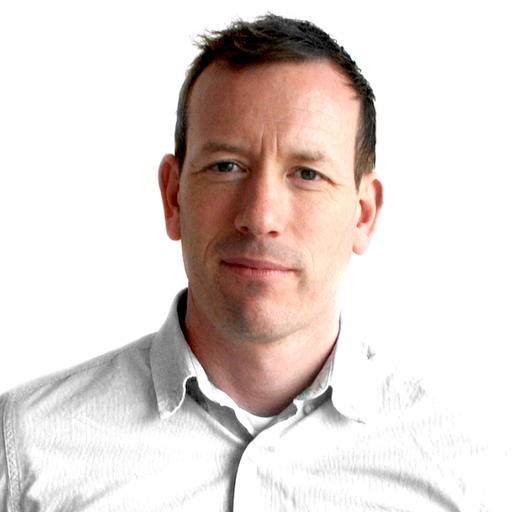
Shane McAllister
Today's Guests
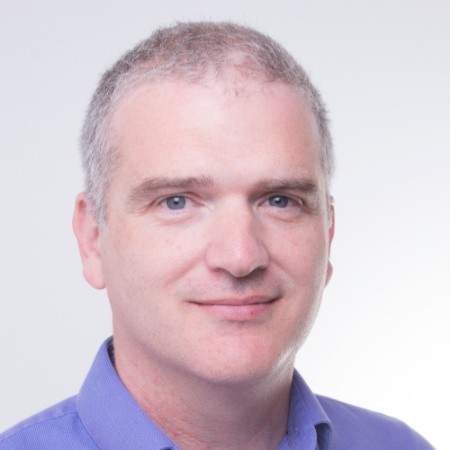
Ger Hartnett
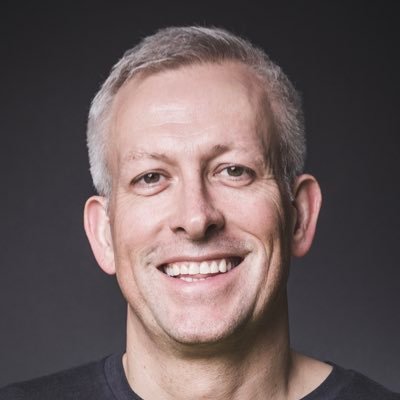
Ian Massingham
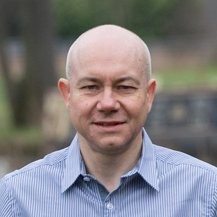
Steve Walsh
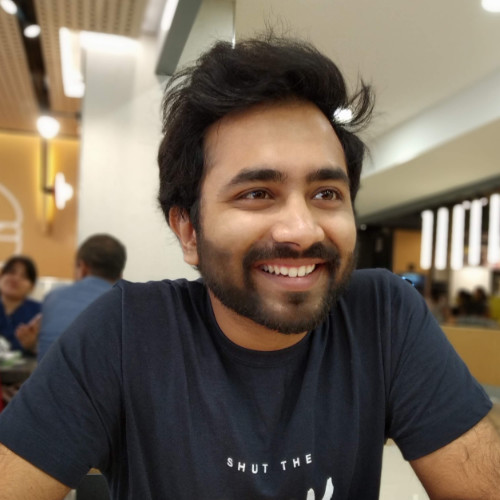
Abhishek Agarwal
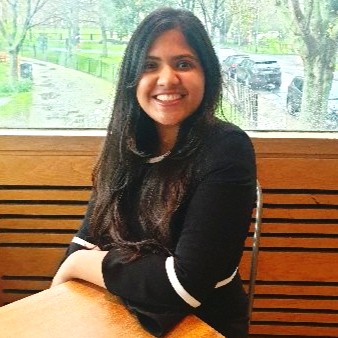
Snehal Bhatia
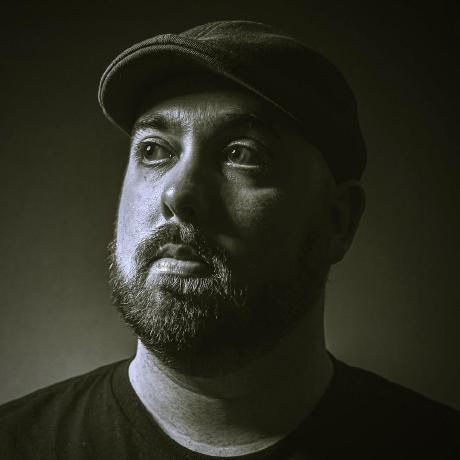
David Bradford
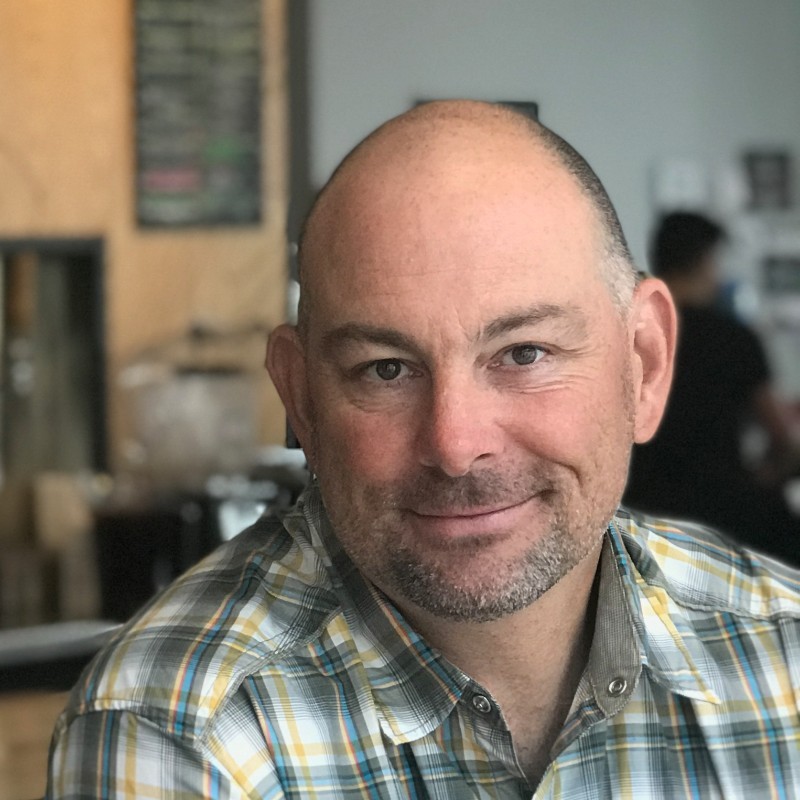
Kenny Gorman
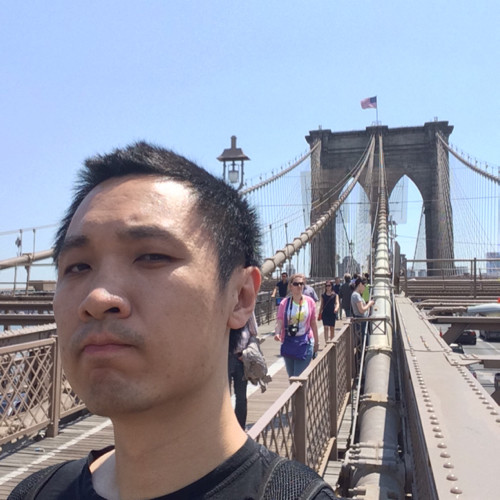
Xiaochen Wu
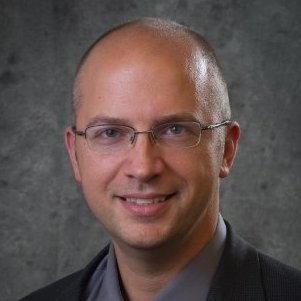
Rob Walters
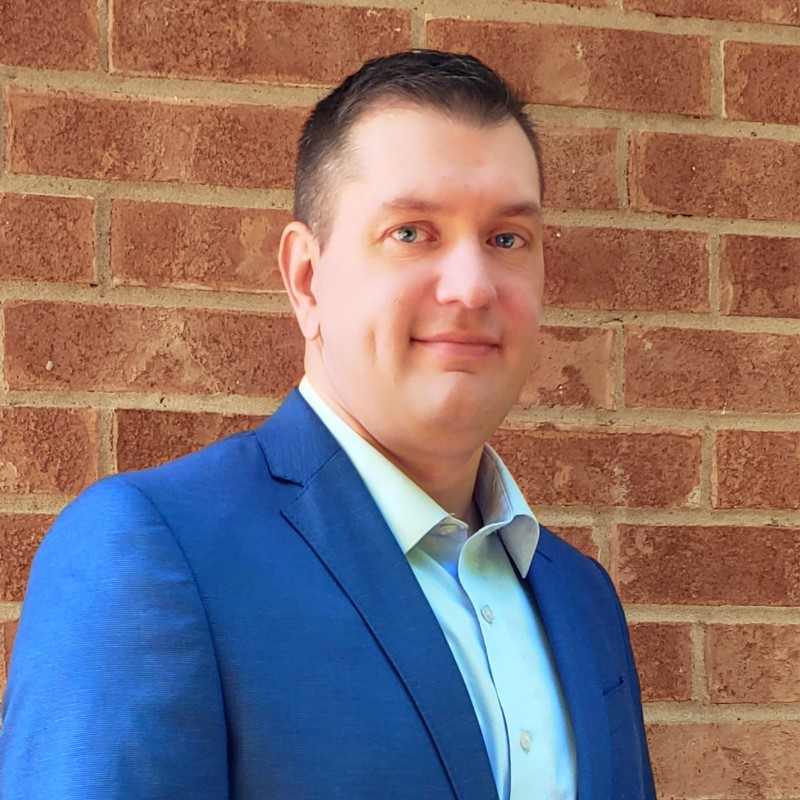
Jesse Hall
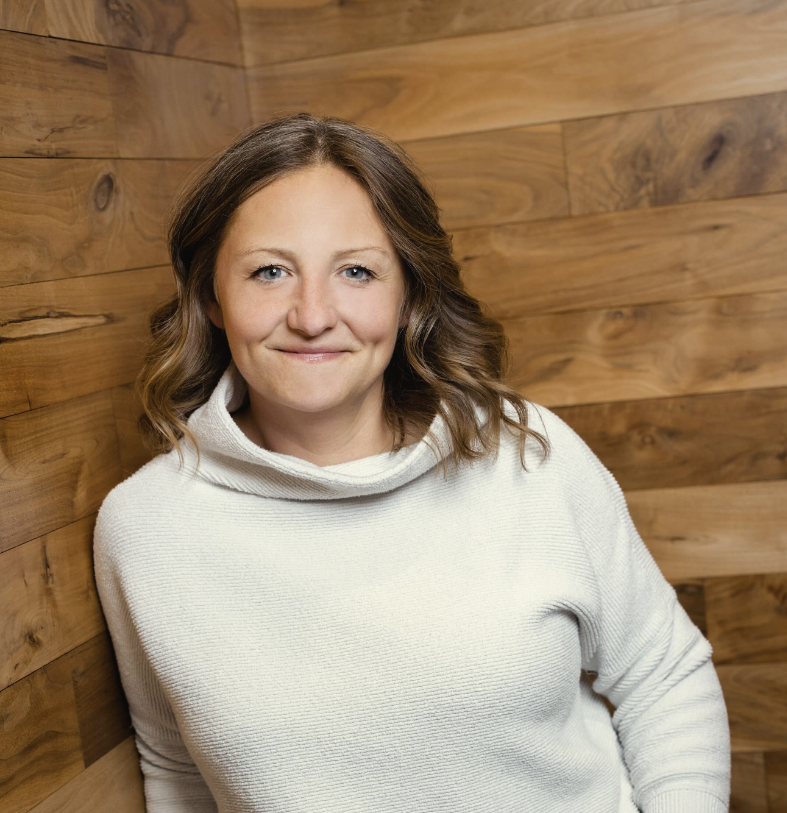
Anna Kowalczuk
